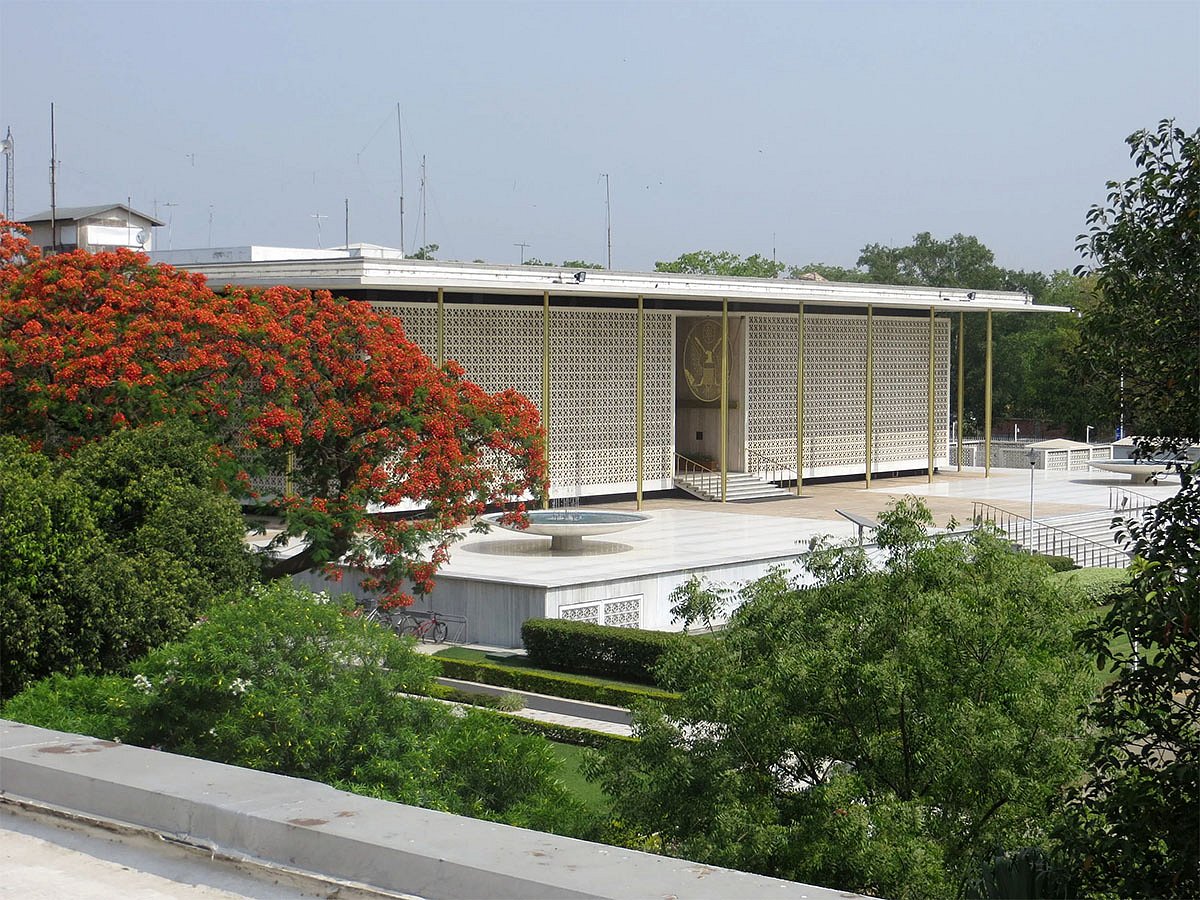US revokes, denies visas of Indian executives, family members tied to fentanyl precursor trafficking
Action underscores Washington’s push to block flow of lethal synthetic opioids: Embassy

Dubai: The United States announced on Thursday that it has revoked and denied visas for several Indian business executives and corporate leaders accused of involvement in trafficking fentanyl precursors.
The unprecedented move, confirmed by the US Embassy in New Delhi, also extends to immediate family members of those executives.
Fentanyl precursors are the base chemicals used to manufacture fentanyl, a powerful synthetic opioid that has driven a deadly epidemic in the United States.
Even in tiny doses, fentanyl can be lethal. The US government has made stopping the flow of fentanyl and its precursors one of its top law enforcement and public health priorities.
The embassy said the visa revocations and denials were carried out under sections 221(i), 212(a)(2)(C), and 214(b) of the Immigration and Nationality Act. This means the affected executives and their relatives “may be ineligible for travel to the United States.”
What are they?
Base chemicals used to make fentanyl, a synthetic opioid.
Potency: Even microgram amounts of fentanyl can be lethal.
Global concern: Trafficking of precursors enables mass illicit production, fueling the opioid crisis.
US deaths: Tens of thousands of Americans die each year from fentanyl overdoses.
Priority issue: Stopping precursor flows is at the core of US drug enforcement policy.
“The US Embassy in New Delhi remains steadfast in its commitment to combating illicit drug trafficking. Individuals and organisations involved in the illegal production and trafficking of drugs to the United States, along with their families, will face consequences that may include being denied access to the United States,” said Charge d’Affaires Jorgan Andrews.
While the embassy declined to release the names of the companies or individuals affected, it confirmed that executives associated with firms previously flagged for trafficking fentanyl precursors would face heightened scrutiny in future visa applications.
How they are smuggled by air
Small parcels: Precursors are powders or liquids that can be shipped in tiny amounts.
False labels: Declared as “lab reagents,” “cleaning agents,” or “food additives” to avoid suspicion.
Courier & cargo routes: Sent through international courier services or mixed with legitimate air cargo.
Hidden in luggage: Carried by couriers in toiletries, medicine bottles, or food packaging.
Transit hubs: Routed through multiple countries to disguise origin and destination.
Detection gap: Only a fraction of air cargo is chemically screened, making flights a preferred option.
Previous US actions
Thursday’s move marks the second time this year Washington has imposed visa restrictions on Indian nationals.
In May, the US State Department announced restrictions on owners and officials of Indian travel agencies accused of “knowingly” facilitating illegal immigration to the United States.
More than 300 Indian nationals were deported that month on three US military flights, the first time such deportations had been carried out in that manner, according to news reports.
The US Department of Justice has also taken direct legal action against Indian companies.
In January, prosecutors charged two Gujarat-based firms — Raxuter Chemicals and Athos Chemicals — and Bhavesh Lathiya, a founder and senior executive of Raxuter, with “criminal conspiracies to distribute and import fentanyl precursor chemicals” to the United States.
Lathiya was arrested in New York on January 4 and arraigned before a federal magistrate in the Eastern District of New York, according to the Hindustan Times.
At the time, then-Attorney General Merrick Garland said the accused had “conspired to distribute and import fentanyl precursor chemicals from India to the United States and Mexico.”
According to prosecutors, the companies allegedly used international mail and commercial carriers to send chemical products while concealing their contents through mislabelling, falsified customs forms, and fraudulent declarations.
Cooperation with India
The US Embassy statement emphasised Washington’s appreciation for New Delhi’s cooperation in addressing what it described as a “shared transnational threat.”
“We are grateful to our counterparts in the Government of India for their close cooperation to combat this shared challenge. Only by working together will our two governments address this transnational threat and keep both our people safe from illicit drugs,” the embassy said.
The embassy also linked the action to the broader policy framework laid down during the Trump administration, which issued executive orders to secure US borders, combat drug trafficking organisations, and press source countries to crack down on illicit drug and precursor chemical flows.
By targeting Indian executives, the embassy said, Washington is sending a clear signal that corporate complicity in the global fentanyl trade will have direct consequences, not only for companies but also for their leadership and families.
Sign up for the Daily Briefing
Get the latest news and updates straight to your inbox
Network Links
GN StoreDownload our app
© Al Nisr Publishing LLC 2026. All rights reserved.
